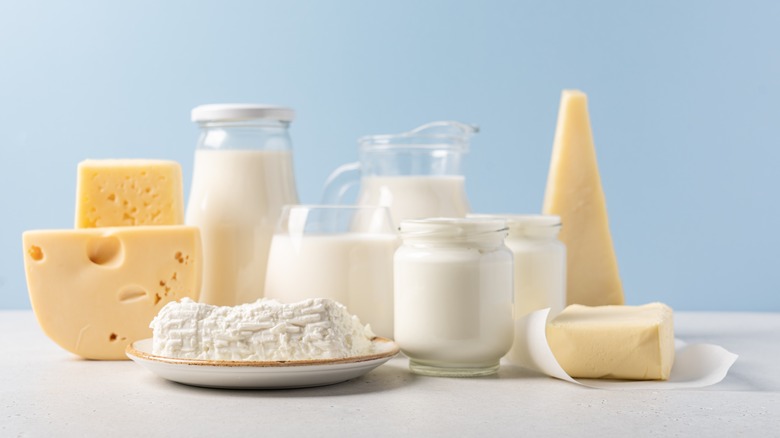The Best Way To Fix Soup That's Way Too Spicy
Many home cooks have scorched their taste buds with overly spicy foods that seemed beyond repair. Whether it's pho with far too many jalapeño peppers or hot and sour soup with an overload of white pepper, utilizing too many spicy ingredients in soups is a common kitchen mishap. And whether you love or hate spicy foods, it's important to note where those intense flavors come from. And for that, we'll turn to Food Republic for a discussion on capsaicin. The site states that all chili peppers have this organic compound, and when the pain receptors on your tongue meet these capsaicin molecules, your brain becomes the first to tell you that your tongue is burning. And here's a cool fact: Capsaicin is actually the defense mechanism of chili peppers, as it's their way of telling us not to eat them. And clearly, it's something that humans have blissfully ignored.
But capsaicin also contains a surprising number of health benefits, like helping to manage diabetes, lowering blood pressure, and even being utilized in certain cancer treatments, per Chili Pepper Madness. That said, it's probably best to refrain from overloading your soups with various chile peppers just to reap a few health benefits. But let's pretend this did end up happening, either by accident or on purpose, and whatever you make does become borderline inedible because of the high level of heat. Rather than throwing said soup away and starting from scratch, try utilizing this easy fix to lower the spice.
Reach for dairy products
You might have heard about drinking milk if your mouth is figuratively on fire. According to Cleveland Clinic, you can thank casein for that. Found in all types of cow's milk, as well as in cheese, yogurt, butter, and goat's milk, per McKenzie Pediatrics, casein is a protein that helps to disintegrate the capsaicin in spicy peppers. Translation: Animal milk helps to soothe the burn in spicy foods.
Now, sure, you can keep a heaping glass of milk by your side while you dine on, say, a spicy black bean soup, but we think it's far more interesting to add dairy products to the soup itself. We're talking about plain yogurt, sour cream, crème fraîche, or even a small amount of heavy cream or milk, per AllRecipes. It's best to start with a little bit of such dairy products, taste the soup, and then add more dairy as needed. The goal is to have some elements of heat throughout the soup but reduced in a way that's not overpowering on the palate.
If you can't consume dairy, try adding some extra water or non-dairy broth to the soup (like chicken stock), via Southern Living. This may dilute some of the flavors, but you can always add extra seasonings to compensate for any "watery" tastes. And while milk substitutes, such as oat milk, might be an obvious choice here, Cleveland Clinic mentions that these don't have any casein to help with the spiciness.

